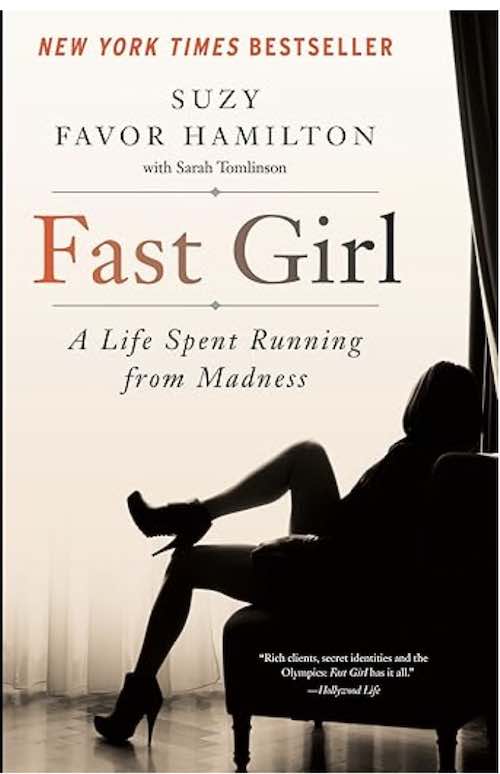Suzy Favor Hamilton and I have two things in common: we were both born in August 1968, and we were both drawn to running at a young age.
That is where the similarities end. Hamilton made it to the Olympics in 1992, 1996, and 2000. I made it only to the Ohio State Cross Country Championships in 1985—where I placed about midway through the pack.
After her running career ended, Hamilton also worked as a high-price escort in Las Vegas for a while. As in running, her competitive instincts took over. She explains in an interview (above) how she became fixated on achieving a top ranking on The Erotic Review, a website where clients review escorts.
By this time she was also a wife and a mother. Hamilton’s husband was aware of her activities. Whether this was some kind of a kink for him, or merely something he tolerated, is unclear. But he knew what she was doing.
One thing is clear: she got careless. By 2012, Hamilton was in her 40s, and her Olympic career was in the past. She was never a household name or a major celebrity, in the way that Bruce Jenner, Michael Phelps, or Kristi Yamaguchi were. Nevertheless, she was a public figure of some renown, and she was asking for trouble when she revealed her identity to several clients.
Eventually, a journalist from the gossip website The Smoking Gun tracked down Hamilton and exposed her. Thus ended her double life.
When the information became public, Hamilton was deluged with hate mail. She lost the few endorsement deals she had, and local awards named after her were hastily renamed.
Hamilton underwent counseling after her public exposure. A psychologist conveniently found clinical causes for her high-end escorting activities. When men are drawn to sex, power, and money, they are just being men. (Or, perhaps, they are succumbing to “toxic masculinity”.) When women are similarly motivated, they must be mentally ill.
Hamilton wrote about her rise and fall (in both sports and high-end prostitution) in her memoir, Fast Girl.
The reader reviews on Hamilton’s memoir contain some finger-wagging remarks to the effect that she seemed to enjoy her life as a call girl a little too much. (You’ll mostly find these remarks among the 1- and 2-star reviews.) These readers allege that her biggest regret is her public exposure.
These assessments are not entirely inaccurate, but are they fair?
Sex work is certainly far from the ideal. That said, I have never understood why a woman who gives it away a little too freely is vigorously defended from accusations of “slut-shaming”, while a woman who leverages the economics of scarcity automatically becomes both a public pariah and a criminal.
The prohibition on sex work has relatively little to do with “human trafficking”, as the moralists on the right and the left both claim. No one, after all, was compelling Suzy Favor Hamilton.
The prohibition is more likely rooted in the discomfort that many people have with the idea of sex becoming a fungible service, like tax preparation or carpet cleaning. The levelizing effects therein would upset the entire social hierarchy. But I digress.
Readers interested solely in Hamilton’s running career, and her insights on running, may prefer her earlier book, Fast Track: Training and Nutrition Secrets from America’s Top Female Runner (2004).
-ET


